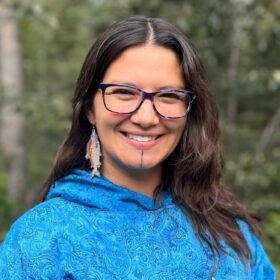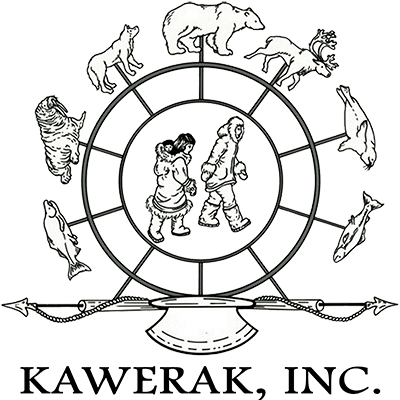What drew you to the Caleb Scholars Program?
What drew me to the Caleb Scholars Program was the amount of support for students
interested in Indigenous Knowledge and Western Science. I feel as if academia tries to force the
Western Science approach on Indigenous students instead of making the connection between
the two. The Caleb Scholars Program empowers Alaska Native scholars to embrace our
traditional ways of knowing and that our experiences have value. Having a cohort of Indigenous
mentors and Caleb Scholars Alumni will provide guidance and resources that are relatable and
personalized for me.
What does Inuit-led environmental conservation mean to you?
To me, Inuit-led environmental conservation means Arctic communities advocating for our
ancestral lands for our ecosystems to thrive. With ancestral knowledge and stewardship, we are
the experts of our lands. If we are able to connect our ways of knowing with Western sciences,
we have the opportunity to contribute to conservation of our land and its resources. A strong
presence of Inuit-led and Indigenous mentors, supporters, and leaders is important, especially
for our youth. From a young age, we were taught how to care for our land, its people, animals,
and its resources. We can take what is ingrained in us to have a seat at the table with
government agencies and advocate for our marine habitats.
How do you engage with environmental conservation in school and/ or at home?
I engage in environmental conservation in school by choosing courses that will allow me to
learn the history of our lands and how it has been affected by people. I enjoy attending
conferences, summits, presentations, etc., that involve Arctic ecosystems and being aware of the
research that is being conducted in our area. At home, my parents teach me how to care for
our land and learn from our environment. My daughters are learning beside me on the impacts
we can make towards conservation of our lands that our ancestors fought so hard to preserve.
What are your educational and career goals? How do your goals relate to
environmental conservation?
My educational goal is to build a multidisciplinary degree that connects Traditional Ecological
Knowledge with research in fisheries, climate change and the environment. With a One Health
approach, I will add Culture and Rural Development, Tribal Law, and Natural Resource
Management to my Interdisciplinary Studies degree plan. I am contemplating applying for the
Tamamta program to further my education with support from mentors that will foster my
interests of Indigenous and Western Sciences. I plan to pursue a career that will allow me to
advocate for my people, our subsistence practices, the land, and its resources. I am interested in
becoming a Tribal Resilience Liaison, or to pursue a career that will allow me to bridge the gap
between our rural communities and research.
Please share a reflection of when have you have felt a connection to the ocean or
the land.
Anytime that I am on tundra or in the forest, I feel a deep connection to every detail around
me. The breeze brings back memories and a break from the mosquitos while berry picking. The
unforgiving terrain of the tundra and the resiliency of the plants always amaze me

